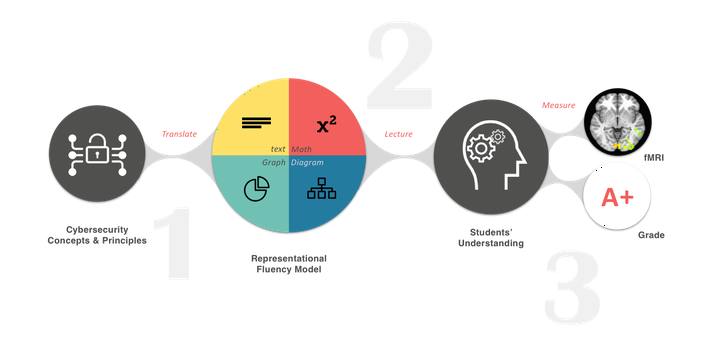Enhancing Cybersecurity Education Through a Representational Fluency Model
 Concept Diagram of the Project
Concept Diagram of the ProjectCybersecurity experts must possess several abilities: deep technical skills, the capability to recognize and respond to complex and emergent behavior, mastery of using abstractions and principles, the ability to assess risk and handle uncertainty, problem-solving and reasoning skills, and facility in adversarial thinking. Based on cognitive theory, this project will investigate the efficacy of model eliciting activities for developing students' ability to recognize and respond to complex and emergent behavior, and how to handle uncertainty and ambiguity. This project extends the theory of representational fluency, which has been proven to be a powerful tool to effectively teach complex concepts in the field of Science and Mathematics to the cybersecurity domain. The findings from this project will shed light on how representational fluency can shape the cognitive schema and cultivate the cybersecurity mindset.
The goals of this project are to: 1) develop model eliciting educational activities that teach network security related concepts using and translating among multiple representations, 2) investigate students' representational fluency and schema of these concepts, and 3) investigate the relationship of students' development of schema and changes in their cognitive processing and control. While the context for this educational research will be network security and the students will be at the undergraduate level, the theory and framework built through this research should be relevant to other knowledge areas in cybersecurity and applicable to different levels of students and professionals in different settings including university classroom or adult continuous education.